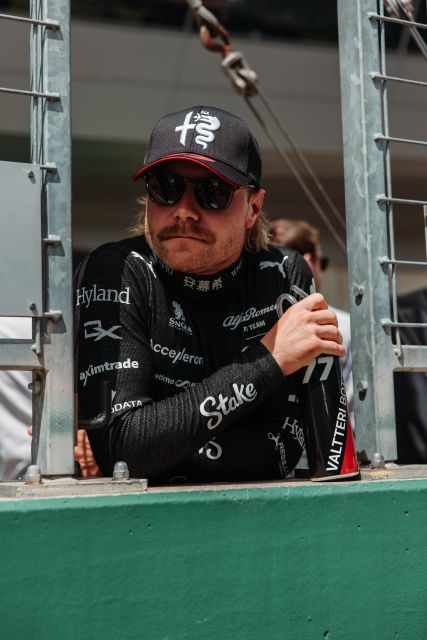F1 News: Sauber’s Troublesome Bahrain Pit Stop Explained – The Nut That Cost Crucial Seconds
Sauber’s head of trackside engineering, Xevi Pujolar, recently disclosed the real reason behind Valtteri Bottas’s exceptionally long pit stop at the Bahrain Grand Prix. The culprit? A problematic wheel nut. This unexpected hiccup cost Bottas valuable time, impacting his overall performance in the race.
Key Takeaways:
- Wheel Nut Woes: Xevi Pujolar, from the Sauber team, confirmed that the 52.4-second delay in Valtteri Bottas’s pit stop was caused by an issue with the wheel nut. This significant delay played a pivotal role in Bottas’s performance in Bahrain.
- Race Results Affected: As a consequence of the prolonged pit stop, Bottas finished in 19th place, narrowly outperforming Logan Sargeant from Williams. Meanwhile, his teammate Zhou Guanyu finished just outside the points bracket in 11th place.
- Pit Stop Strategy and Challenges: Pujolar shed light on the complexities faced during the pit stop. Despite a damaged front wing, the team opted not to replace it to keep the situation manageable, focusing primarily on resolving the wheel nut issue. He emphasized the ongoing efforts to optimize pit stops for better efficiency.

In an intense and unpredictable sport like Formula 1, every second counts, and for Sauber’s Valtteri Bottas, a single pit stop turned the tides at the Bahrain Grand Prix. Initially, what seemed like a routine stop turned into an over 52-second ordeal, significantly impacting his race outcome. Bottas, who has shown consistent performances in the past, was relegated to a 19th-place finish, barely ahead of Williams’s Logan Sargeant.
The incident unfolded after Bottas made contact with Nico Hulkenberg’s Haas VF-24 at the first turn, causing damage to the front left wing of his car. Despite this, the decision was made during his second pit stop on Lap 30 not to replace the damaged wing but to focus on the more pressing wheel nut issue.
Xevi Pujolar’s statement to the press highlighted the specific challenges faced during this moment. “We had an issue where we had to change the wheelnut. It’s something that we are working on,” Pujolar said. He further explained the thought process behind not replacing the damaged front wing, emphasizing the need to keep things simple under the circumstances and focusing on the immediate problem.
Pujolar also discussed broader strategic implications, acknowledging the need for improvements in their pit stop strategy. “We will have a look, for sure. We are working in all areas to try to optimize everything,” he said. He noted that while Bottas’s pit stops faced issues, Zhou’s pit stops were efficient, demonstrating the team’s ability to perform under pressure.
This incident at Bahrain serves as a reminder of the delicate balance and precision required in F1. Teams must constantly evolve and adapt their strategies, not just in terms of speed but also in ensuring reliability and efficiency in every aspect of the race, including pit stops. As the season progresses, it will be interesting to see how Sauber adapts and overcomes these challenges, possibly turning them into opportunities for growth and improvement.


